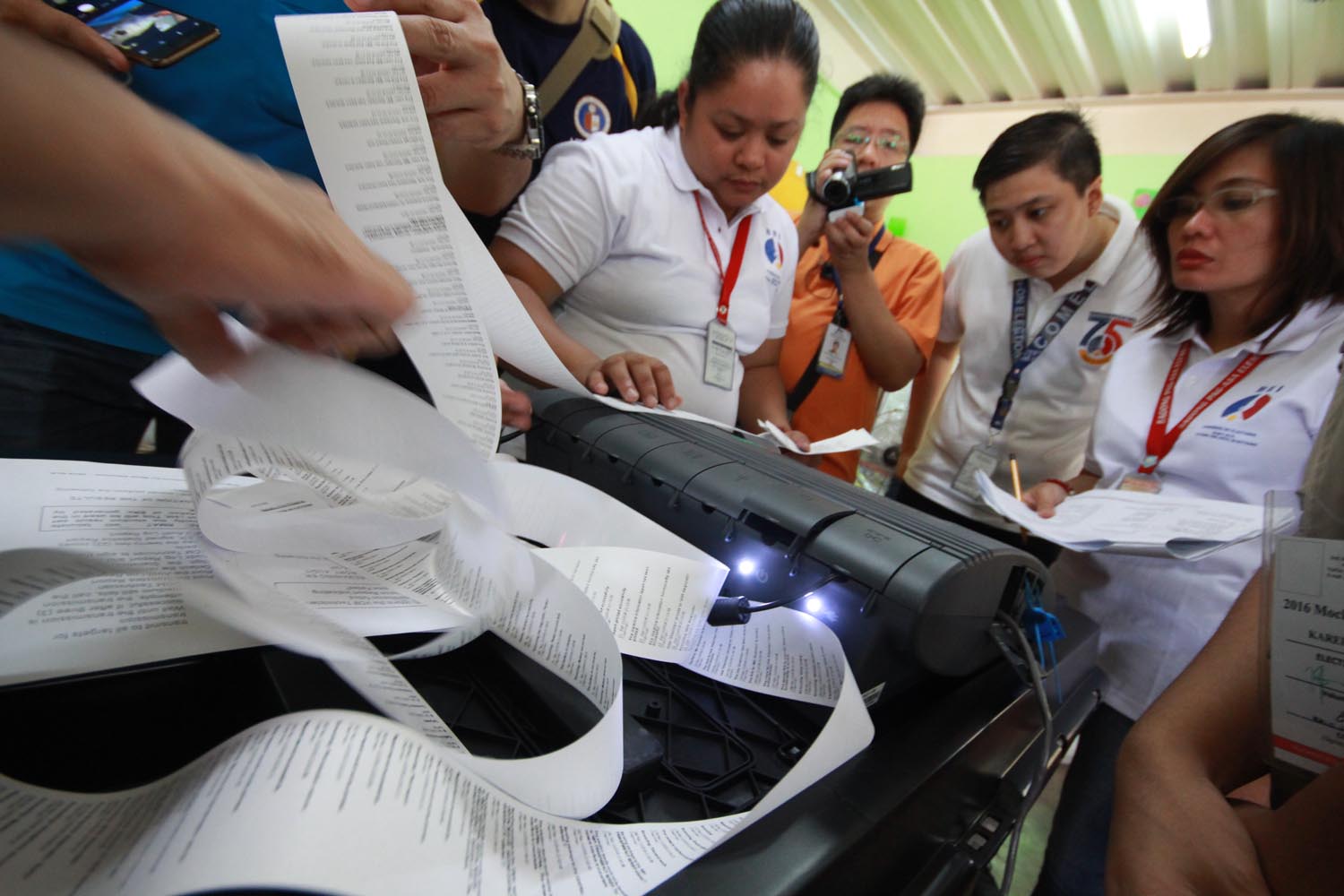 Last February 22, Richard Gordon, a returning senatorial candidate, filed a Petition for Mandamus before the Supreme Court. He seeks to compel the Commission on Elections (Comelec) to activate the Voter Verification Paper Audit Trail (VVPAT) feature of the vote-counting machines (VCM) that will be used in the May 9, 2016, elections.
Last February 22, Richard Gordon, a returning senatorial candidate, filed a Petition for Mandamus before the Supreme Court. He seeks to compel the Commission on Elections (Comelec) to activate the Voter Verification Paper Audit Trail (VVPAT) feature of the vote-counting machines (VCM) that will be used in the May 9, 2016, elections.
The activation of the VVPAT will enable the machins to issue “voting receipts.” Gordon reasoned that this is a “critical and indispensable” security feature of voting machines as it serves as a “physical record” of the voter’s choices.
The VVPAT is one of the 15 requirements comprising the so-called “Minimum System Capabilities” set in Section 6 of Republic Act Number 8436, as amended by Section 7 of Republic Act Number 9369. These minimum features or functional capabilities serve as Comelec’s indispensable criteria in choosing the appropriate election technology.
The purpose of the VVPAT is to secure that there is a “paper trail” in cases that there are questions regarding the accuracy and the integrity of the automated count.
The present controversy arose from Comelec’s decision not to issue “voting receipts” on the upcoming 2016 elections. Gordon claims that it is in breach of the VVPAT requirement. Maintaining its stand during the 2010 and 2013 elections, Comelec reasoned that the physical ballots themselves already satisfy the VVPAT requirement, and that the voting receipts would only facilitate vote buying.
While Gordon is correct that VVPAT is indeed mandatory, he is wrong in assuming that the only acceptable VVPAT under RA 9369 is a physical voting receipt. The law, which he claims he wrote, only says that the machine should be capable of providing a “voter verified paper audit trail.” As to the nature and kind of paper trail, I have to disagree with the former senator’s narrow view that it has be a “voting receipt” all the time.
It must be noted that the law itself gives Comelec the discretion to pick the election system and, specifically, the type of machine to be used. Necessarily, the kind of paper audit trail has to depend on whatever technology is chosen by Comelec.

I could have agreed with Gordon on the indispensability of voting receipts had Comelec adopted a “direct-recording electronic”or DRE technology. Under such paperless set-up, the voter inputs his votes directly on the voting machine by the use of a touchscreen, touchpad, or keypad. There is no ballot under that set-up, and to provide an auditable paper trail, the DRE voting machine has to generate voting receipts.
Comelec, however, has long been avoiding the use of DREs, preferring instead the use of “optical mark readers” or OMR (previously called PCOS, now VCM). OMRs are capable of capturing human-marked data from physical ballots filled out by voters.
Contrary to the impression of many, the casting of votes remained manual in the Philippines, in such a way that voters are still given physical ballots, where they manually mark the ovals corresponding to their choices. What has actually been automated are only the: precinct counting, the transmission, and the consolidation of results in the municipal level and upwards.
In this case, the very physical ballots obviously are the auditable paper trail, which could qualify as VVPAT required by Republic Act Number 9369. In fact, they are the ones used in the mandatory “random manual audit” conducted to survey the accurateness of the count. Furthermore, any candidate not satisfied with the result can also file an election protest and opt for the recounting of the ballots and compare its results with the machine count. In addition to that, Smartmatic’s OMR is also capable of scanning all ballots fed into it and storing them as an additional paper trail, although digital.
In other words, what candidate Gordon asks for is a redundancy, for Comelec to spend taxpayers’ money for a feature already satisfied by the physical ballots. Critics' argument that the voting receipt would afford the voter the opportunity to verify if the votes recorded by the machine were the same ones he cast does not hold water. Even in a manual election, once the ballots are commingled, voters also have no assurance that their ballots will be counted by the Board of Election Inspectors at the end of the day.
This uncertainty is but a necessary consequence of the secrecy in democratic balloting. This is mandated no less by Article V, Section 2, of the 1987 Constitution and even by Article 25 (b) of the International Covenant on Civil and Political Rights, to which the Philippines is a signatory. While antithetical to the notion of transparency, this uncertainty is mitigated by an established system of post-election recount, where dissatisfied candidates can always seek for a manual post-election recount of ballots.
The other argument against voting receipts is that these can be used in vote buying and selling. Those pieces of paper will only clear the last hurdle to vote buying – that is, the lack of effective means to ascertain if the voter who was paid actually voted for the candidate who bought his vote.
Lastly, it is very important to note that the issue of whether Smartmatic’s OMR complied with the “Minimum System Capabilities” set by RA 9369, including its compliance with the “voter verified paper audit trail” requirement, has been elevated so many times to the Supreme Court, and has each time it is rejected.
In the two most important cases, the Roque vs Comelec (GR Number 188456, September 10, 2009) and Capalla vs Comelec (GR Number 201112, June 13, 2012) the Supreme Court ruled that the Smartmatic PCOS (precinct count optical scan) machines (which are now called VCM) are compliant with the “Minimum System Capabilities” set by RA 9369.
Whether former Gordon filed this case to pursue a personal advocacy or to gain free publicity, it does not help raise the confidence of the people in our electoral system and in the Comelec. Apart from that, I am curious: should Gordon get re-elected through an automated election system – which he has been maligning for being illegal, fraudulent, and untrustworthy – will he nevertheless assume office? – Rappler. com
Emil Marañon III is an election lawyer who served as chief of staff of recently retired Comelec Chairman Sixto Brillantes Jr. He is currently studying Human Rights, Conflict and Justice at SOAS, University of London, as a Chevening scholar.